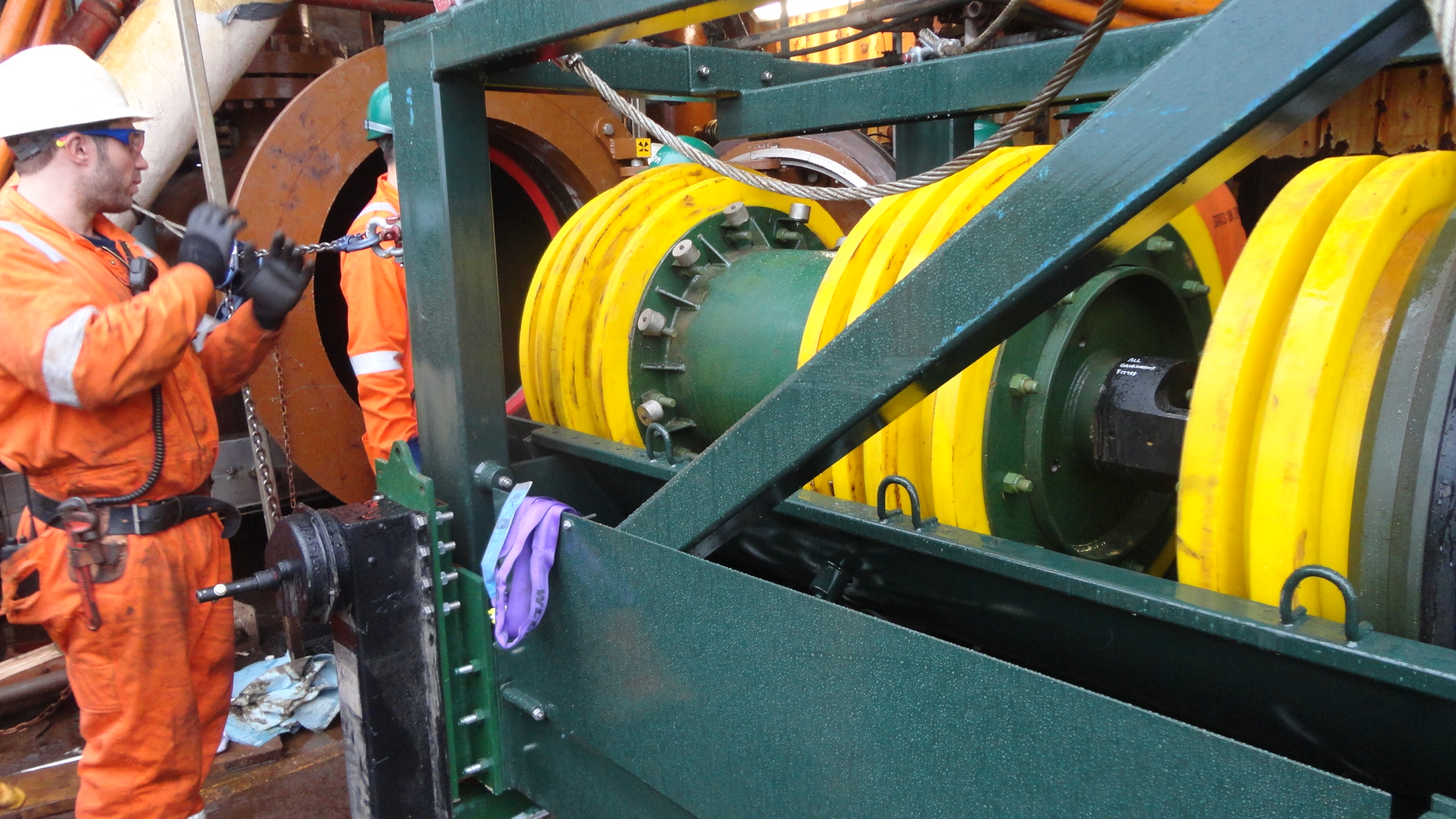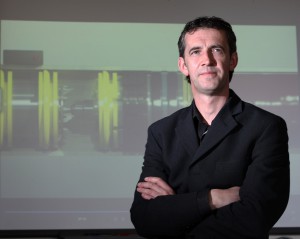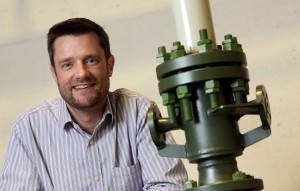August 2015, Vol. 242, No. 8
Features
STATS Group Completes Complex Isolation of North Sea Pipeline

Pipeline engineering specialist STATS Group was contracted by Apache North Sea Ltd. to isolate the Forties Pipeline System (FPS) so that subsea isolation valves (SSIV) and piping spools could be safely installed and leak tested, avoiding the need to depressurize the entire pipeline system.
The 36-inch main crude oil line is a major pipeline network in the North Sea carrying 40% of the UK’s oil, with over 50 offshore assets flowing into the 169-km FPS, which runs from Forties Charlie platform to Cruden Bay terminal, transporting 700,000 bpd.
Aberdeen-based STATS provided two remotely controlled Tecno Plugs™, the first offering double-block isolation from pipeline pressure, with the second providing a local leak test boundary. The two-plug method maintains a safe isolation and provides a leak test boundary which prevents pressurizing the entire pipeline up to leak-test pressure.
A detailed engineering and piggability assessment confirmed the fitness-for-purpose of the Tecno Plug and identified a suitable set-location for the isolation plugs. An isolation committee from a subsea engineering and construction company assessed the suitability of the high-pressure remote isolation plug as a double-block barrier for diver-breaking containment activities.
The plugs were deployed and pigged in a train with two bi-directional batching pigs positioned ahead of the plugs. The complete plug train was pigged to the set-location using inhibited seawater to ensure the section of pipeline being removed was fully de-oiled, prior to breaking of containment preventing any oil release into the environment.
With the plug accurately positioned, it was hydraulically set to activate the locks and dual seals. Precise positioning and accurate tracking was provided by means of an assured subsea extremely low frequency (ELF) control system; this system also provides continuous monitoring throughout the isolation. The second plug was at location but was not hydraulically set until the construction scope was completed.
Independent testing of each seal with full pipeline pressure confirmed leak-tight isolation and the pipeline was bled down to subsea ambient from the platform launcher to the rear of the plug. The annulus between the seals was vented to ambient to create a zero-energy zone.
After an eight-hour isolation stability hold period, an ‘Isolation Certificate’ was signed and the plug was confirmed as providing double-block isolation of the Forties Pipeline, allowing the subsea construction phase to commence. Two pipeline spool pieces were removed to allow installation of the two metrology spools required to tie in the pre-installed SSIV arrangement to the pipeline and the Forties Charlie platform.
With subsea construction completed, the newly made-up flange joints were locally leak-tested at each gasket to provide initial confirmation of the joint integrity. This allowed the pipeline pressure to be equalized behind the isolating plug and the seals and locks were actively unset.
The rear plug was remotely operated to hydraulically set the seals and locks; once the barrier was proven, a reinstatement leak test of the newly installed SSIV was conducted by raising the pipeline pressure from the platform launcher to 158 bar against the leak-test plug.
The leak-test plug was then unset and the pipeline pressure equalized, allowing the plug train to be pigged through the newly installed SSIV back to the launcher on the Forties Charlie platform for recovery.
Pete Duguid, CEO of STATS Group, cited “the team effort across all parties involved” for the success of the project which was completed incident-free and three days ahead of schedule.”
Mark Richardson, Apache North Sea Limited Projects group manager, noted that the complex pipeline isolation formed a major part of the SSIV project.
DNV GL Approves Isolation Tools
STATS Group said it has received the DNV GL seal of approval for its Tecno Plug and BISEP range of pipeline isolation tools. A world leading accreditation body, DNV GL has issued certificate P-15082 for the 3-48-inch range for both Tecno Plugs and BISEPs. According to STATS, the approval means that the products are fully compliant to the highest standards and do not require further work or adaptation by the end-user.
To date, STATS said it has completed over 200 Tecno Plug deployments, including recent isolations in Oman, Malaysia, Canada and the UK Central North Sea.
STATS patented BISEP provides high-pressure intervention and isolation through a single hot tap penetration. Since its development less than 10 years ago, STATS has deployed over 60 hot-tapped isolations, enabling maintenance work to be carried out while meeting industry-led double block and bleed requirements.
Targeting Americas for Long-Term Growth
Meanwhile, STATS said it has invested $2 million (£1.3 million) in new facilities in Houston to expand its services in the US and South American oil and gas markets. The company, which designs, manufactures and installs a range of high-tech pipeline isolation and intervention tools, has opened a 25,000-square-foot office and workshop facility on Brittmoore in northwest Houston and said it expects to add to its U.S. headcount over the next year.
Stephen Rawlinson, previously general manager in Canada, was promoted to vice president for the Americas, while Scott McNae was elevated from global projects manager to general manager for U.S. operations.
Rawlinson said: “We recently won contracts worth more than $15 million to provide intervention (hot tapping) and isolation services to one of North America’s largest energy infrastructure companies and we believe we can replicate that success in the U.S.
“To be able to make the best out of emerging opportunities we need local facilities in the Gulf of Mexico and feet on the ground. This investment in Houston will provide us with a framework to get in to the tendering rounds, quickly start mobilization when projects are confirmed and build on our track record of project execution in North America.”
He said STATS believes there are project opportunities in the U.S. onshore and offshore pipeline sector, with Houston also providing a springboard to mobilize for projects in South America. The company’s Process Plant Solutions division will also target the refineries, chemical plants and oil and gas platform sector, offering rentals, sales and servicing options, he said.
“The market potential is massive and our intervention and isolation tools are unlike other options available in the marketplace which gives us the confidence to make this investment and take a long-term approach to U.S. growth,” Rawlinson said.
STATS employs a staff of 280 in the UK, Canada, U.S. and the Middle East, specializing in the isolation, intervention, repair, and testing of pipeline systems. The Houston expansion follows a similar investment in Canada where the company doubled its workshop and testing facilities in Edmonton and added a project support office in Calgary.
Middle East Emergency Pipeline Repair Contract
STATS Group was recently awarded a $10 million (£6.5 million) for a 10 year contract by a major LNG operator in the Middle East. The Emergency Pipeline Repair Service and pre-planned isolation contract follows the completion of a similar contract on behalf of the world’s largest LNG producer. Qatargas.
STATS will design, manufacture and test pipeline isolation and intervention equipment for a range of pipeline sizes from 16-38 inches. The equipment will be stored in Qatar in a state of readiness, for pre-planned and emergency situations, at the client’s offshore gas production facilities located in Qatar’s North Field and onshore LNG plant at Ras Laffan industrial city.
The contract includes double block and bleed isolation tools including Remote Tecno Plugs™ from 16-38 inches, subsea monitoring and communication systems and 32-inch and 38-inch BISEP™ intervention tools and hot tapping equipment. The installation of the isolation and intervention tooling suites will provide positive isolation at the required location and a safe environment to carry out quick and effective repair on subsea and onshore pipelines in the event of a damage incident.
STATS’ Middle East regional director, Angus Bowie, said the company was now well established as a global leader in EPRS development and implementation.
“Our focus on establishing our credentials in the Middle East EPRS sector has paid off and our original contract with Qatargas has now been followed with this significant award by another major operator in the Middle East. We will use the experience and our track record of first-class delivery of these major Qatar projects to seek out other global opportunities for similar EPRS contracts.”
STATS Middle East business development manager, Vikas Shangari, added: “STATS has executed in excess of 40 isolation projects in the Middle East, ranging from 2-48 inches on oil, gas and utility pipeline systems.
“Typically projects include the replacement or installation of pig trap and main isolation valves; however, we have also facilitated the removal of dead leg and redundant bypasses connected to main pipelines developing corrosion issues. Many of these projects were conducted without the need for a full system shutdown, providing an excellent value proposition and helping our clients realize operational, economic and environmental benefits in comparison to traditional maintenance techniques.”

Pete Duguid, CEO, STATS Group

Stephen Rawlinson, vice president for the Americas





Comments